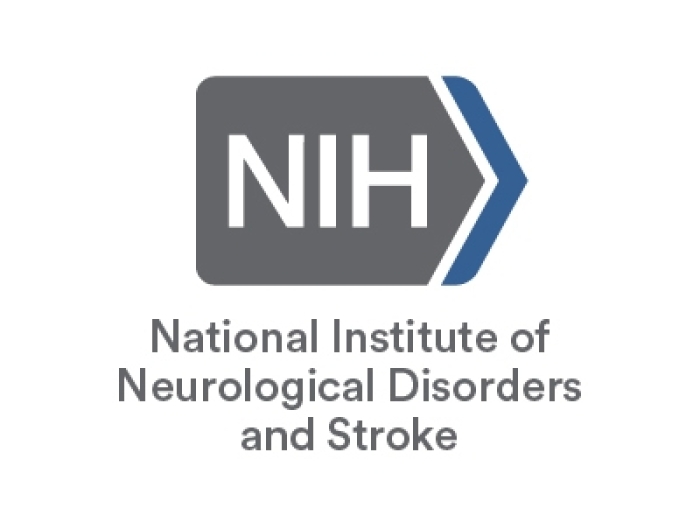
Morris K. Udall Center of Excellence in Parkinson’s Disease Research
Up to 70% of patients with Parkinson disease (PD) fall each year, quadrupling the rate of hip fractures, leading to extended hospitalizations, increased use of skilled nursing facilities and eventual nursing home placement, and increasing the risk of death. University of Michigan scientists developed evidence that falls and related gait problems, resistant to currently available treatments, arise from degeneration of brain cells that use the neurochemical messenger acetylcholine.
Brain acetylcholine deficits likely contribute to cognitive deficits in PD and impair the integration of cognitive functions with motor performance. In studies in Parkinson’s disease participants and in animal models, we are working to further dissect the relationship between falls, other gait problems, impairments in cognition, and deficits of different populations of brain acetylcholine cells. Using new visualization methods, our team finds that abnormalities of nerve cells that use acetylcholine occur early in the disease process, and that changes in distinct groups of these nerve cells occur in patients with specific problems with gait and falls. These deficits may identify a subgroup of PD patients with a more aggressive clinical course. Complementary findings in animal models of PD are providing a detailed understanding of how these changes cause “freezing” of gait and falls, and deficits in spatial navigation.
Together with other studies, this work is the precursor to investigating new treatments for PD.
The NIH National Institute of Neurological Disorders and Stroke (NINDS) Parkinson’s Disease Research Centers of Excellence program was developed in honor of former Congressman Morris K. Udall of Arizona. Mr. Udall was elected to the U.S. House of Representatives in 1961 in a special election to replace his brother Stewart, who left the position to become President John F. Kennedy’s Secretary of Interior. Representative Udall was diagnosed with Parkinson’s disease (PD) in 1979; however, he remained active in Congress until his retirement in May 1991. He died in 1998 after a long battle with the disease. On November 13, 1997, the President of the United States signed the Morris K. Udall Parkinson’s Disease Research Act of 1997 into law (P.L. 105-78). Five Udall Centers across the country carry out important research on PD, including the identification and characterization of candidate and disease-associated genes, examination of neurobiological mechanisms, establishment of improved PD models, development and testing of potential therapeutics, and novel avenues of clinical research.
The University of Michigan Udall Center research team is a highly interactive and productive group of investigators from different disciplines. Members of the Udall team include investigators from the Departments of Neurology, Radiology and Psychology. Our group publishes extensively in several areas of PD research, including clinical characterization and molecular imaging of acetylcholine cells and related systems in PD participants and parallel experiments in rodent models of PD and related movement disorders.
Pioneering work in PD participants led by University of Michigan Udall Center investigator Dr. Nico Bohnen uses novel brain imaging methods to show that loss of acetylcholine brain cells is strongly associated with falls, other gait problems, and cognitive deficits. In particular, loss of specific groups of cholinergic cells robs patients of the ability to pay close attention to their movements and environment, reducing movement safety, particularly in complex environments. Loss of other types of cholinergic cells likely impairs perception of other forms of information important for movement. In closely related animal model work, the specific circuits underlying these problems are being investigated by Udall investigator Dr. Kent Berridge, casting light on how attentional information is integrated with movement mechanisms to produce gait coordination. In closely related work, Udall director and investigator Dr. Roger Albin is using brain imaging methods to probe how loss of acetylcholine cells causes cognitive deficits, and may identify a group of PD subjects at risk for faster progression. In parallel work, Udall investigator Dr. Omar Ahmed is studying the cellular mechanisms acetylcholine signaling in an important cognitive function, spatial navigation. Drs. Prabesh Kanel and Robert Koeppe perform and analyze all PET and magnetic resonance imaging in the Neuroimaging Resource Core. Parkinson’s disease outreach efforts are led by Dr. Kelvin Chou.
Core Lead: Roger Albin, MD
The Administrative Core coordinates all scientific, administrative, and educational activities of the U-M Udall Center. The central objective is to facilitate the realization of the scientific and educational goals of the U-M Udall Center.
Core Co-Lead: Nicolaas Bohnen, MD, PhD
Core Co-Lead: Kirk Frey, MD, PhD
The Clinical Resource Core performs comprehensive assessments of all subjects (PD and control) enrolled for Projects I and III. All subjects are evaluated with established clinical, motor, and neuropsychological instruments. The Clinical Resource Core utilizes many of the Parkinson disease Common Data Elements (CDEs) for evaluations. The Clinical Resource Core collaborates with the Neuroimaging Resource Core for imaging assessments.
Core Co-Lead: Prabesh Kanel, PhD
Core Co-Lead: Robert Koeppe, MD
The Neuroimaging Resource Core oversees acquisition and analysis of all imaging data for Projects I and III. The Neuroimaging Resource Core oversees performance and analysis of MRI studies, and [11C]DTBZ and [18]FEOBV PET studies. The Neuroimaging Resource Core has standard analysis pipelines for these studies and collaborates with Project I and III investigators-personnel on analysis of imaging data. The Neuroimaging Resource Core collaborates with the Clinical Resource Core on multimodal analysis of imaging datasets. The Neuroimaging Resource Core is responsible for the transfer and analysis of imaging data from our University of Groningen DUPARC study.

With a grant from the National Institute of Neurological Diseases and Stroke, part of the National Institutes of Health, U-M becomes home to one of only five Morris K. Udall Centers of Excellence in Parkinson’s Disease Research in the country. Named for a noted member of Congress who battled the disease, the Udall Centers bring together researchers from many fields to tackle big questions in Parkinson’s, to educate the next generation of Parkinson’s researchers, and to serve as a vital resource for patients with the disease.